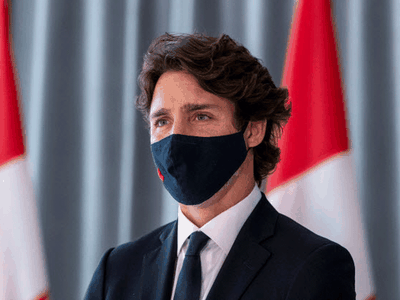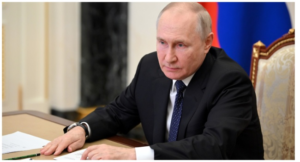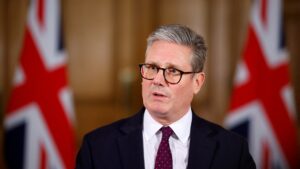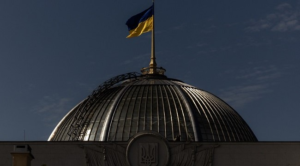
OTTAWA – Prime Minister Justin Trudeau warned Friday that anyone travelling outside Canada could face considerable trouble getting back home, as new evidence suggests some COVID-19 variants are both more transmissible and more deadly.
“No one should be taking a vacation abroad right now. If you’ve got one planned, cancel it. Don’t book a trip for spring break,” Trudeau said outside of Rideau Cottage. “We could be bringing in new measures that significantly impede your ability to return to Canada at any given moment without warning.”
The government has had travel advisories warning against any non-essential travel since the beginning of the pandemic, but some Canadians have not heeded that call. Trudeau said people should also avoid any unnecessary trips within the country.
After long resisting stricter measures, and downplaying the role international travel plays in Canada’s pandemic, the government introduced new testing requirements for incoming international travellers in late December.
Those rules have slowed travel, but in the last two weeks there have still been several reports of new cases on many flights including cities like London, Amsterdam and Los Angeles, as well as sun destinations like Cancun, Mexico, Montego Bay, Jamaica and Puerto Plata in the Dominican Republic. The dozens of flights are all listed on a government website warning passengers they may have been exposed.
Trudeau did not specify what further measures could be put in place and took no immediate steps, but Public Safety Minister Bill Blair said everything was on the table including mandatory hotel quarantines and complete travel bans.
Despite current shortages, federal government insists all Canadians will get COVID vaccine by September
“We are looking at a number of measures that can include further restrictions on international travel, additional tracing measures, additional quarantine measures and enforcement measures in order to disincentive people from taking unnecessary trips.
”Blair said Canada’s quarantine measures are some of the toughest in the world already, but the government would not hesitate to go further.
“We have been responding very quickly and we’ve tried to be very upfront with Canadians to discourage them from taking non-essential, discretionary travel vacations, out of the country.”
Several significant variants to the virus have been found in countries around the world including Brazil, South Africa and the U.K.
British Prime Minister Boris Johnson said new research on the variant that has spread rapidly in Britain seems to indicate the mutation is 30 per cent more deadly.
“We have now learned that, in addition to spreading more quickly, the new variant of the virus may be associated with a higher degree of mortality,” Johnson said.
In a joint statement with industry unions, the National Airlines Council of Canada, pleaded with the government to work with them on any new restrictions.
We have been responding very quickly and we’ve tried to be very upfront with Canadians
In a statement, the council said international travel has dropped 93 per cent and travellers currently represent less than one per cent of new cases in Canada.
“Over the course of the pandemic, industry, labour, and government have for the most part worked effectively to implement a myriad of new regulations designed to continue to protect employee, passenger and public health,” said the group’s president Mike McNaney “Airlines and airline workers are the front-line implementors of these policy changes. We need to work together to ensure an effective outcome for all involved.”
As of Friday, Canada had reported 31 cases of the U.K variant and another three cases of the one from South Africa.
Dr. Theresa Tam, the chief public health officer, said Canada is testing a sample of five per cent of all positive cases looking specifically for the variants and also testing cases when usual outbreaks occur. She said most provinces have the capabilities to look for the variants, but some are sending samples to the national laboratory.
She said that can include outbreaks that seem to move quickly, involve international travel or appear resistant to vaccines, but she acknowledged the government should be doing more.
“We have been sampling at a relatively good rate but I think we need to do more so right now, efforts are being set up to do that in a more significant way.”
Blair also announced the government would be sending two mobile health units to help with hospital overcrowding in the Greater Toronto Area. The facilities can treat non-critical patients and Blair said each has a capacity of 100 beds.
“This will help relieve pressure on Ontario’s strained hospital capacity, due to the prevalence of COVID-19.”




